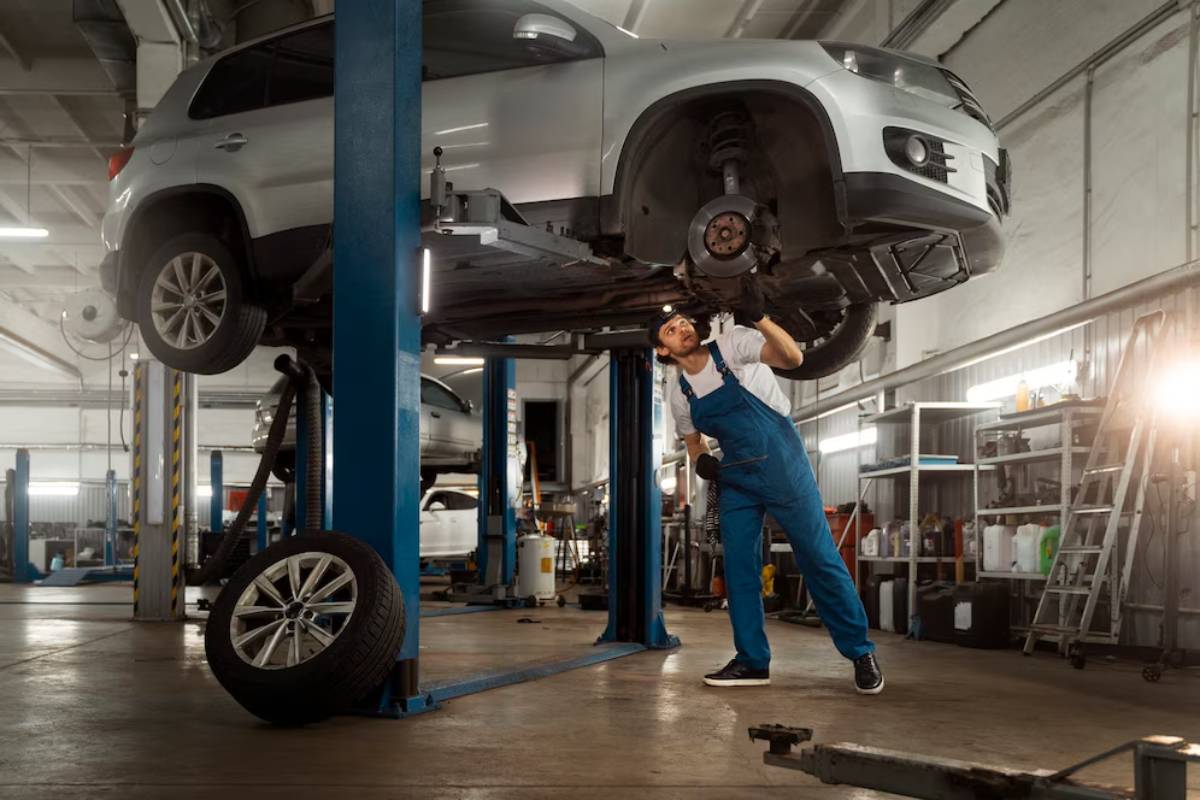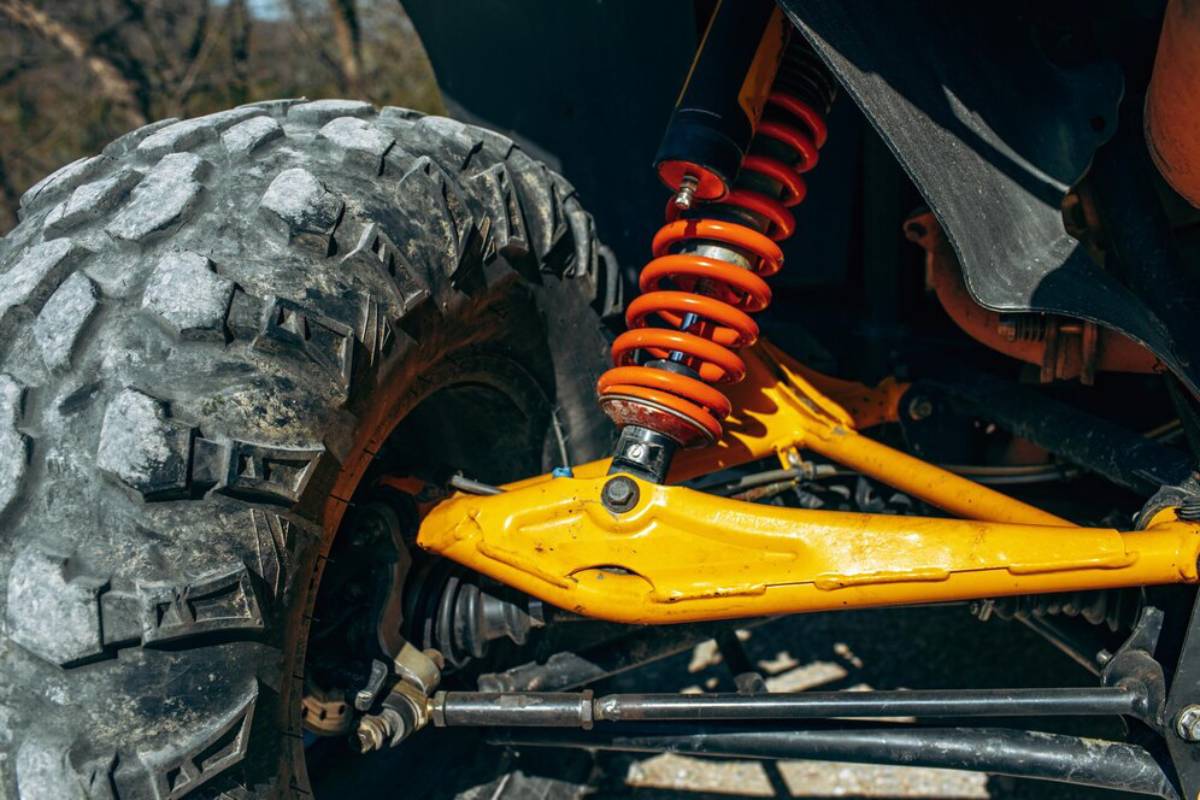
Air Suspension vs. Coilovers: Which One is Best?
Choosing the right suspension is no joyride—it’s a journey of discovery. Air suspension and coilovers each offer unique benefits for different driving experiences. Knowing their strengths is essential whether you’re a speed aficionado or just craving a smoother glide. This detailed guide will navigate the nuanced world of air suspension versus coilovers. Let’s steer you toward the perfect upgrade for your ride—it’s time to elevate your driving experience!
Choosing the right suspension system goes beyond personal taste. It affects your vehicle’s performance, comfort, and driving experience. Coilovers are popular for their precision and adjustability. In contrast, air suspension systems are known for versatility and comfort. In this article, we will compare both systems to help you choose the best upgrade for your vehicle.
Key Benefits / Why It Matters
Understanding the Importance of Suspension Systems
A vehicle’s suspension system is crucial for control, stability, and comfort. It absorbs shocks from bumpy roads. This keeps the tyres in contact with the ground and ensures a smooth ride. A sound suspension system dramatically improves the driving experience. This makes it essential for both everyday drivers and performance fans.
Why Compare Air Suspension and Coilovers?
Air suspension and coilovers offer two different ways to enhance ride quality and handling. Each system has unique strengths, making them fit for various driving conditions and preferences. Comparing these options helps drivers choose what best meets their needs, whether they focus on comfort, performance, or both.
Real-Life Applications and Insights
In the world of automotive upgrades, the choice between air suspension and coilovers often boils down to the vehicle’s intended use. For instance, a driver looking for a comfortable daily commute might lean towards air suspension, while a track enthusiast seeking precision and control might opt for coilovers. Understanding these real-life applications can help you tailor your suspension choice to your driving lifestyle.
Step-by-Step Guide / Actionable Insights

Exploring Air Suspension Systems
What is Air Suspension?
Air suspension systems replace traditional metal springs with air springs, which are essentially rubber and plastic bags inflated to a certain pressure. These systems allow for adjustable ride height and stiffness, enabling drivers to tailor the vehicle’s stance and comfort level according to their preferences. Air suspension is particularly popular in luxury vehicles and can provide a smoother ride over rough terrain.
Advantages of Air Suspension
- Adjustability: Air suspension systems offer unparalleled adjustability, allowing drivers to change the vehicle’s ride height with the push of a button. This feature is particularly beneficial for navigating different road conditions or achieving a preferred aesthetic stance.
- Comfort: Known for providing a plush ride, air suspension systems excel in absorbing road imperfections, making them ideal for long-distance travel or daily commuting.
- Versatility: With air suspension, drivers can easily switch between a low, sporty stance for improved aerodynamics and a higher ride height for better ground clearance.
Considerations for Air Suspension
While air suspension systems offer numerous benefits, they have drawbacks. The complexity of these systems can lead to higher maintenance costs, and potential failures in the air compressor or bags can be costly to repair. Additionally, the initial investment for air suspension is typically higher than that of coilovers.
Exploring Coilover Systems
What are Coilovers?
Coilovers, short for “coil over shock absorbers,” are a type of suspension system that combines coil springs and shock absorbers into a single unit. These systems are highly favoured in performance and racing applications due to their ability to provide precise handling and control. Coilovers are available in various configurations, allowing for adjustments in ride height, damping, and spring rate.
Advantages of Coilovers
- Performance: Coilovers are renowned for their performance-oriented design, superior handling and responsiveness. This makes them popular for drivers who prioritise cornering ability and road feedback.
- Customisation: With adjustable damping and spring rates, coil-overs allow drivers to fine-tune their suspension setup to match their driving style and conditions.
- Durability: Coilover systems are generally more robust and less prone to failure than air suspensions, making them a reliable choice for demanding driving scenarios.
Considerations for Coilovers
While coilovers offer excellent performance benefits, they may not provide the same comfort level as air suspension, particularly on rough or uneven roads. Additionally, the installation and adjustment process for coilovers can be more complex, requiring specialised tools and expertise.
Additional Expert Tips & Common Mistakes to Avoid

Best Practices for Suspension Upgrades
- Assess Your Needs: Consider your driving habits and priorities before choosing a suspension system. Your decision will be influenced by whether you value comfort, performance, or a balance of both.
- Quality Matters: Invest in high-quality components from reputable manufacturers to ensure reliability and longevity.
- Professional Installation: For optimal performance and safety, consider having your suspension system installed by a professional with experience in suspension upgrades.
Common Mistakes and Misconceptions
- Overlooking Maintenance: Air suspension and coilovers need regular care to work well. Ignoring this can cause early wear and possible failures.
- Check Compatibility: Ensure the suspension system fits your vehicle’s make and model. This helps avoid installation problems and performance issues.
- Costs Matter: Coilovers might seem cheaper at first, but remember to consider the long-term upkeep and possible repairs of air suspension when making your choice.
Advanced Insights / Expert Recommendations
Tailoring Your Suspension Choice
If you want a custom driving experience, consider combining air suspension with coilovers. Some advanced setups let you mix air springs with coilover parts. This hybrid method gives you the comfort of air suspension and the performance of coilovers.
Industry Perspectives
Automotive experts stress the need to match suspension choices with vehicle use. For example, a daily driver may prefer the comfort and flexibility of air suspension. In contrast, a track-focused build would likely need the precision and control of coilovers. The best suspension system fits your driving style and meets your needs.
“Air Suspension vs. Coilovers: Making the Right Choice for Your Ride”
There’s no one right answer in the air suspension vs. coil-overs debate. Each system has its benefits and fits different driving styles and conditions. Knowing the key differences can help you choose what boosts your vehicle’s performance and ride quality.
When weighing your options, consider your driving habits, budget, and future plans. You might prefer the comfort and adjustability of air suspension or the precision of coil-overs. Investing in a quality suspension system can lead to a better driving experience.
The best upgrades match your needs and improve your connection to the road. So, take time to explore your options, talk to experts, and make a choice that enhances your driving experience.